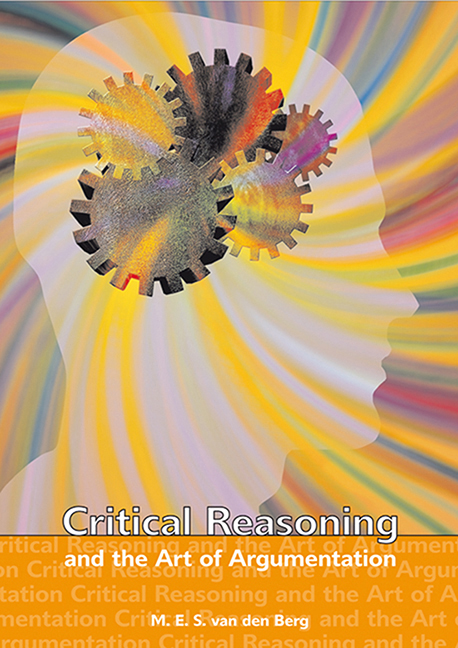Book contents
- Frontmatter
- Contents
- Preface
- CHAPTER 1 What is critical reasoning?
- CHAPTER 2 Obstacles to clear thinking: Preconceived ideas and fallacies
- CHAPTER 3 Working with arguments
- CHAPTER 4 How to analyse arguments
- CHAPTER 5 Definitions, counterexamples and counterarguments
- CHAPTER 6 Evaluating arguments
- CHAPTER 7 Applying your knowledge and skills to the evaluation of arguments
- CHAPTER 8 Constructing arguments and writing argumentative essays
- References
- Glossary
- Index
CHAPTER 3 - Working with arguments
Published online by Cambridge University Press: 20 February 2020
- Frontmatter
- Contents
- Preface
- CHAPTER 1 What is critical reasoning?
- CHAPTER 2 Obstacles to clear thinking: Preconceived ideas and fallacies
- CHAPTER 3 Working with arguments
- CHAPTER 4 How to analyse arguments
- CHAPTER 5 Definitions, counterexamples and counterarguments
- CHAPTER 6 Evaluating arguments
- CHAPTER 7 Applying your knowledge and skills to the evaluation of arguments
- CHAPTER 8 Constructing arguments and writing argumentative essays
- References
- Glossary
- Index
Summary
Every man is encompassed by a cloud of comforting convictions, which move with him like flies on a summer day.
Bertrand RussellEach and every day we encounter arguments in our reading, on the radio, on television and when we access the internet. We also, of course, encounter arguments in our conversations with others. In fact, we are flooded by an ‘information overload’, which includes many people trying to convince us about a variety of things: taking out a life policy, looking after a sick mother, not eating genetically modified food, joining in a strike for higher wages, voting for a particular political party, and so on. Often we are manipulated or confused by their arguments and, as a result, make bad decisions.
Critical reasoning can help you to reason well and to make informed decisions: it can help you to detect and avoid bad methods of reasoning, such as reasoning based on deception or the misuse of emotions. The aim of this chapter is to empower you to develop and sharpen your critical reasoning skills when analysing arguments.
What is an argument?
When we talk about an argument, we do not mean a quarrel between two friends or partners. In critical reasoning, when we talk about an argument, we mean the word in its philosophical sense. Because arguments have a central place in critical reasoning, it is important for you to understand what is meant by the term ‘argument’. An argument is an attempt to convince someone that a claim (the conclusion) is true or acceptable. Here is a definition of an argument:
An argument is a collection of statements. One of these statements is the conclusion, whose truth or acceptability the argument tries to establish. The other statements are premises that are intended to support the conclusion, or to convince you that the conclusion is true or acceptable.
Note, however, that not every group of statements makes up an argument. In our definition of an argument we said that an argument is a collection of statements in which at least one statement (a premise) is offered as the reason for accepting another statement (the conclusion). The premises of an argument are supposed to lead to, or provide support for, the conclusion. The premises, however, do not always do so or are insufficient or weak.
- Type
- Chapter
- Information
- Critical Reasoning and the Art of Argumentation , pp. 37 - 48Publisher: University of South AfricaPrint publication year: 2010

